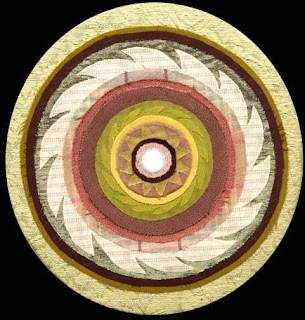 |
| Meh Face, cartoon sketch Jude Spacks '16 |
"I just can't force it anymore," she said.
"That sounds like good news!" I said, feeling vicarious relief.
She went on, "But the other day I saw this cloth I've been wanting to make curtains out of forever, and before I knew it, I'd started working on them." She brightened. "I'd forgotten how much I like touching fabric and ironing seams. I was so into it! I thought doing that might somehow help my writing flow more. But maybe I'm kidding myself--I'm probably just justifying my procrastination." She deflated a bit.
"I don't know," I said. "Resistance might also look like judging a movement of real creative inspiration by calling it procrastination."
"That's true," she said. "It felt right at the time, but then my head likes to second-guess everything."
Never mind that for now. Aren't you tired of wondering whether you're doing the right thing the right way? It takes a lot of juice to run that background monitoring program in the brain which identifies us with what we do, keeping tabs on our imaginary bank accounts of gold stars and demerits with extra brownie points for effort.
Refresh those poor synapses that have been laboring in the mucky ditches of old neuropathways, trying so hard to earn your keep. Take a pause, redirect, reboot. Anytime, anyway you dive back into Here-Now, you serve your own true-loving, mysterious, zig-zagging, roller-coastering Creative Process.
------------------------------------------
Truth and Dare coaching invites the liberating laughter
of seeing through scary mind-made illusions
to the reality of your own brilliance in action.
of seeing through scary mind-made illusions
to the reality of your own brilliance in action.
As stale thinking clears, the stress of trying to control the uncontrollable evaporates.
You reconnect with your own renewable resources of presence, wisdom and confidence.
Your realistic graceful solutions occur to you.
You find yourself walking with a lighter step
You reconnect with your own renewable resources of presence, wisdom and confidence.
Your realistic graceful solutions occur to you.
You find yourself walking with a lighter step
along the unique path that feels right for you now--
exactly as you already are, before you've got it all figured out.
exactly as you already are, before you've got it all figured out.
Want to talk over possibilities for working with Jude?
Schedule a call to Explore Coaching Options
(This links you to my on-line scheduling page, where you'll see a list of types of appointments. Select "Explore Coaching Options" and book your time. I'll look forward to talking with you)
------------------------------------------
Here's another post on freedom from forcing it: A Theory
And an article on finding real discipline for sticking with your work: Dogged Dedication
And an article on finding real discipline for sticking with your work: Dogged Dedication





























